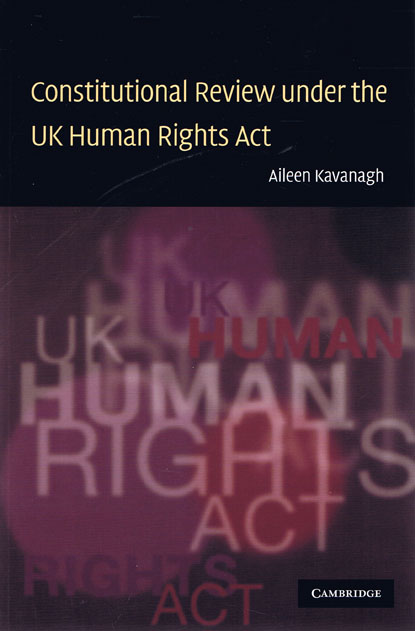Constitutional Review under the UK Human Rights Act
ISBN13: 9780521682190
Published: April 2009
Publisher: Cambridge University Press
Country of Publication: UK
Format: Paperback
Despatched in 5 to 7 days.
Under the Human Rights Act, British courts are for the first time empowered to review primary legislation for compliance with a codified set of fundamental rights. In this book, Aileen Kavanagh argues that the HRA gives judges strong powers of constitutional review, similar to those exercised by the courts under an entrenched Bill of Rights.
The aim of the book is to subject the leading case-law under the HRA to critical scrutiny, whilst remaining sensitive to the deeper constitutional, political and theoretical questions which underpin it. Such questions include the idea of judicial deference, the constitutional status of the HRA, the principle of parliamentary sovereignty and the constitutional division of labour between Parliament and the courts. The book closes with a sustained defence of the legitimacy of constitutional review in a democracy, thus providing a powerful rejoinder to those who are sceptical about judicial power under the HRA.
- Clarifies how the Human Rights Act has modified traditional doctrines of statutory interpretation through in-depth examination of the leading case-law on the compatibility of primary legislation with Convention rights
- Addresses key questions of constitutional theory underlying the application of the HRA to primary legislation, such as the idea of judicial deference, proportionality, parliamentary sovereignty, the separation of powers and the legitimacy of constitutional review in a democracy
- Contributes to the academic debate about the nature of UK public law and the role of the courts within it by providing a sustained riposte to those who claim that judges’ powers to review primary legislation for compliance with Convention rights are illegitimate
